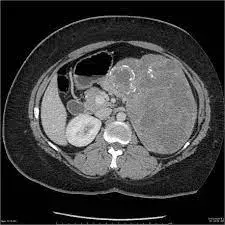- Home
- Medical news & Guidelines
- Anesthesiology
- Cardiology and CTVS
- Critical Care
- Dentistry
- Dermatology
- Diabetes and Endocrinology
- ENT
- Gastroenterology
- Medicine
- Nephrology
- Neurology
- Obstretics-Gynaecology
- Oncology
- Ophthalmology
- Orthopaedics
- Pediatrics-Neonatology
- Psychiatry
- Pulmonology
- Radiology
- Surgery
- Urology
- Laboratory Medicine
- Diet
- Nursing
- Paramedical
- Physiotherapy
- Health news
- Fact Check
- Bone Health Fact Check
- Brain Health Fact Check
- Cancer Related Fact Check
- Child Care Fact Check
- Dental and oral health fact check
- Diabetes and metabolic health fact check
- Diet and Nutrition Fact Check
- Eye and ENT Care Fact Check
- Fitness fact check
- Gut health fact check
- Heart health fact check
- Kidney health fact check
- Medical education fact check
- Men's health fact check
- Respiratory fact check
- Skin and hair care fact check
- Vaccine and Immunization fact check
- Women's health fact check
- AYUSH
- State News
- Andaman and Nicobar Islands
- Andhra Pradesh
- Arunachal Pradesh
- Assam
- Bihar
- Chandigarh
- Chattisgarh
- Dadra and Nagar Haveli
- Daman and Diu
- Delhi
- Goa
- Gujarat
- Haryana
- Himachal Pradesh
- Jammu & Kashmir
- Jharkhand
- Karnataka
- Kerala
- Ladakh
- Lakshadweep
- Madhya Pradesh
- Maharashtra
- Manipur
- Meghalaya
- Mizoram
- Nagaland
- Odisha
- Puducherry
- Punjab
- Rajasthan
- Sikkim
- Tamil Nadu
- Telangana
- Tripura
- Uttar Pradesh
- Uttrakhand
- West Bengal
- Medical Education
- Industry
Laparoscopic parenchyma-sparing pancreatectomy safe and feasible approach for Solid pseudopapillary tumor

Solid pseudopapillary tumor (SPT) of the pancreas is a rare low-grade malignant tumor. Here, we aimed to determine the safety and feasibility of laparoscopic parenchyma-sparing pancreatectomy for SPT located in the pancreatic head.
Researchers have found in a new study that Laparoscopic parenchyma sparing pancreatectomy is a safe and feasible approach for Solid pseudopapillary tumor (SPT).
The new study has been published in the BMC surgery.
Solid pseudopapillary tumor (SPT) of the pancreas is a rare low-grade malignant tumor. Here, we aimed to determine the safety and feasibility of laparoscopic parenchyma-sparing pancreatectomy for SPT located in the pancreatic head.
From July 2014 to February 2022, 62 patients with SPT located in the pancreatic head were operated laparoscopically in two institutions. These patients were divided into two groups according to the operative strategy: laparoscopic parenchyma-sparing pancreatectomy (27 patients, group 1) and laparoscopic pancreaticoduodenectomy (35 patients, group 2). The clinical data were retrospectively collected and analyzed in terms of demographic characteristics, perioperative variables, and long-term follow-up outcomes.
Results
The demographic characteristics of the patients in the two groups were comparable. Compared to the patients in group 2, those in group 1 required less operative time (263.4 ± 37.2 min vs. 332.7 ± 55.6 min, p < 0.001) and experienced less blood loss (105.1 ± 36.5mL vs. 188.3 ± 150.7 mL, p < 0.001). None of the patients in group 1 had tumor recurrence or metastasis. However, 1 (2.5%) patient in group 2 showed liver metastasis.
Laparoscopic parenchyma-sparing pancreatectomy is a safe and feasible approach for SPT located in the pancreatic head, with favorable long-term functional and oncological results
Reference:
Zou, Z., Feng, L., Peng, B. et al. Laparoscopic parenchyma-sparing resections for solid pseudopapillary tumors located in the head of pancreas. BMC Surg 23, 140 (2023). https://doi.org/10.1186/s12893-023-02028-0
Keywords:
Zou, Z., Feng, L., Peng, B, Laparoscopic, parenchyma-sparing, resections, solid pseudopapillary, tumors, located, head of pancreas,BMC surgery
Dr. Shravani Dali has completed her BDS from Pravara institute of medical sciences, loni. Following which she extensively worked in the healthcare sector for 2+ years. She has been actively involved in writing blogs in field of health and wellness. Currently she is pursuing her Masters of public health-health administration from Tata institute of social sciences. She can be contacted at editorial@medicaldialogues.in.
Dr Kamal Kant Kohli-MBBS, DTCD- a chest specialist with more than 30 years of practice and a flair for writing clinical articles, Dr Kamal Kant Kohli joined Medical Dialogues as a Chief Editor of Medical News. Besides writing articles, as an editor, he proofreads and verifies all the medical content published on Medical Dialogues including those coming from journals, studies,medical conferences,guidelines etc. Email: drkohli@medicaldialogues.in. Contact no. 011-43720751


